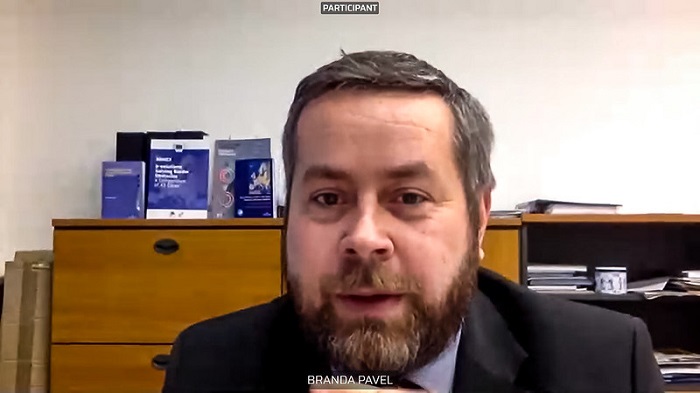
Better access to public services for citizens living in EU border regions is the main focus of the opinion prepared by Pavel Branda (ECR/CZ), deputy mayor of Radlo, which was discussed by the members of the European Committee of the Regions during their February plenary session. In the opinion he highlights the advantages of providing public services across borders and urges for a stronger legal framework, permanent structures such as cross-border contact points as well as financial support through the REACT-EU initiative.
Almost one third of EU citizens live or work in border regions where access to public services, such as transport, education or health care, is often limited compared to central or capital regions. This is especially true for sparsely populated areas with ageing populations. Providing public services across borders would not only increase the quality of life of citizens on each side, but also make public services more cost-efficient. The opinion emphasizes that a stronger legal framework within the EU is required to allow for the efficient establishment and management of cross border public services. The opinion also calls on Member States to reassess their own legal frameworks regarding their impact on border regions, as the current frameworks often impose overwhelming administrative burdens and costs, which cause many local and regional authorities to abandon their plans.
“Access to cross-border public services contribute to reducing negative border effects and can increase the quality of life of citizens living in border regions. We would like to see more concrete steps that would improve conditions for the effective delivery of cross-border public services in Europe such as a legal framework, structures, and financing” , said Pavel Branda (ECR/CZ), deputy mayor of Radlo and rapporteur on the opinion on “Cross-Border Public Services in Europe”.
Anne Sander (FR/EPP), Member of the European Parliament, commented: “ I strongly support the cross-border public services in Europe. The Covid-19 crisis has demonstrated the need to strengthen existing cross-border public services and create new ones in cross-border regions that need them most. These are real pillars of this cooperation between the Member States, and considerably improve the lives of European citizens. Almost a third of European citizens live and work in cross-border regions, and face daily challenges in accessing healthcare, crossing borders, using transport, training, working and even traveling. It is an economic, social, political, and human challenge “,
The rapporteur recommends that the Member States allocate part of their resources within the REACT-EU initiative to cross-border cooperation programmes, thus enabling the efficient restart and strengthening of cross-border cooperation after the COVID-19 crisis. He further suggests establishing stable, permanent, cross-administration national cross-border contact points where necessary, which could help with the systematic removal of border obstacles, and notes that a minimum level of cross-border cooperation must be maintained even in times of crisis.
To increase access to public services in border regions, the European Committee of the Regions reiterates its strong support for legislative proposals such as the European Cross-border Mechanism (ECBM), which is currently blocked in the Council of the European Union. The rapporteur also underlines the benefits and the potential of the European Grouping of Territorial Cooperation (EGTCs) which could be particular useful in cases where public authorities are the main providers and where there is a need for a common budget and staff.
The European Committee of the Regions has also joined the European Cross-Border Citizens’ Alliance launched by the Association of European Border Regions (AEBR), the Mission Operationelle Transfrontalière (MOT) and the Central European Service for Cross-border Initiatives (CESCI) in June 2020, following the experiences of the COVID-19 crisis. The Alliance invites all interested citizens living in border regions, as well as any citizen interested in the topic, to join the Alliance and sign it on the website of the European Committee of the Regions.
Background Information:
· The European Cross-border Mechanism (ECBM) was proposed by European Commission in 2018 as a solution to overcome legal and administrative obstacles hampering cross-border cooperation. In certain circumstances, the mechanism would allow the application of laws of a neighbouring state in cross-border regions. The proposal is currently blocked in the Council of the European Union.
- The REACT-EU initiative is part of the EU’s recovery plan and addresses the economic fallout caused by the COVID-19 pandemic. The initiative, which entered into force on 1st of January 2021, is one of the largest programmes under the new instrument Next Generation EU, amounting €47.5 billion.
- The European Grouping of Territorial Cooperation (EGTC) is a legal instrument designed to facilitate and promote cross-border, transnational and interregional cooperation. The European Committee of the Regions runs the EGTC platform , which integrates the political and technical representatives of all the existing EGTCs, EGTCs under constitution and members of the Expert Group as well as associations and other experts and stakeholders.
Contact:
Carmen Schmidle
Tel. +32 (0) 494 735787
Tobias Kolonko
Tel. +32 2 282 2003